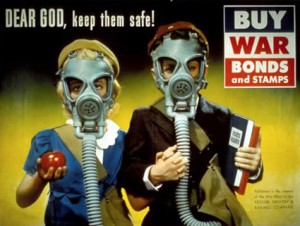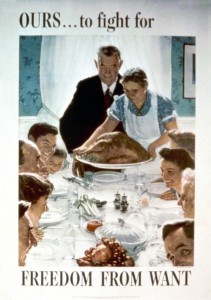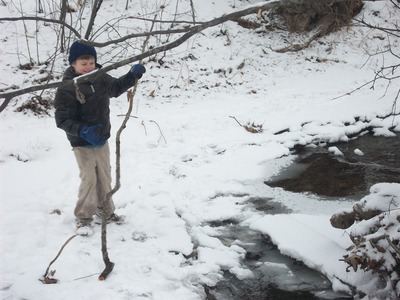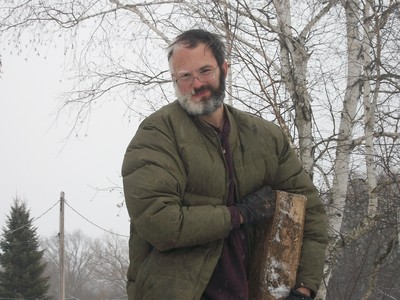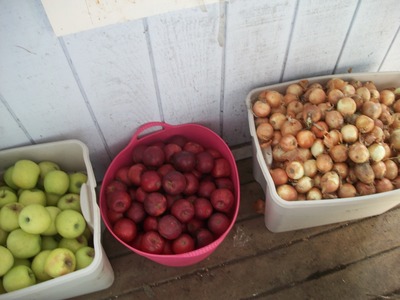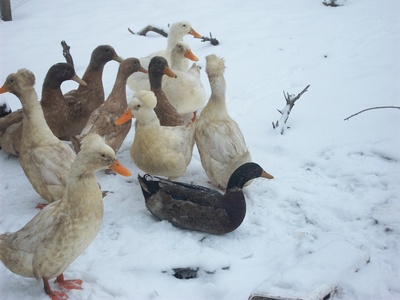Clearing Out and Opening Up
admin February 14th, 2011
We have reached the attic in the great clean-out. That should imply that the whole house is clean. You are free to imagine it that way ![]() . The reality is that my house gets un-clean much faster than it gets re-cleaned, so no. The attic is an exciting place. The kids found a giant magnifying glass (used by Eric’s grandfather to read in late life), a cribbage board made by their maternal great-grandfather, a 1980s electronic chess game of Eric’s that still works…. It has been an exciting adventure so far, and there’s clearly more to discover as we sort through the more prosaic finds “do we know anyone who need’s Grandma’s walker….”
. The reality is that my house gets un-clean much faster than it gets re-cleaned, so no. The attic is an exciting place. The kids found a giant magnifying glass (used by Eric’s grandfather to read in late life), a cribbage board made by their maternal great-grandfather, a 1980s electronic chess game of Eric’s that still works…. It has been an exciting adventure so far, and there’s clearly more to discover as we sort through the more prosaic finds “do we know anyone who need’s Grandma’s walker….”
My afternoon’s work was to sort through the bins of clothes I haven’t looked at in well…a while. Eric’s grandparents died in the winter and spring of 2005 At the time of their deaths, my kids were 5, 3, 18 months and in utero, we were running our CSA, and sorting out their possessions was a major project that just seemed overwhelming and exhausting in that long, hot summer before Asher was born. Some things got shoved in the attic for lack of time and attention. Then, before the project was done, Asher burst into our lives, we had four kids 5 and under, none of them 100% toilet trained, weren’t sleeping much and were *still* cleaning out. So more stuff got shoved in the attic, and well, some of it I’m just getting to now/
Around 18 months, I started getting rid of Asher’s things, determined, despite my body’s habit of getting pregnant around birth control methods that are supposed to have negligible failure rates, that he was it. But I never went back and looked at the baby things, the stuff that ranged in size from a few preemie outfits worn by tiny Isaiah (who arrived 4 weeks early and after a placental abruption that thankfully healed itself) to 18 months. I have a gap between 18 months and size 5 in which I have very little, but it turns out that through an accident of planning, I have a lot of baby stuff. I’d forgotten how much.
Over the years I’ve given away boxes and boxes of baby clothes, but still, there were always enough. That’s the thing about baby clothes - everyone loves to buy them, even if you don’t need them. Everyone has them to share. So even though I gave several friends on the verge of first babies huge boxes full of stuff, there was always plenty more - it seems to sprout in the boxes and in corners.
Now my original plan was to allow myself one very small box for sentiment’s sake, the favorite and beloved outfits - the bris outfits, the gown with the bumblebees that is my most vivid of tiny baby Eli, the tiger outfit that a friend’s newborn son wore to Eric and my wedding, and then was worn by each of my boys in turn, the sweater, knitted on tiny needles by a best friend. The rest of it, I’d assumed, would go - and the crib, the high chair with its permanent coat of grime, the baby car seat, all off to pregnant friends, the local mother’s shelter, Goodwill.
Except that we’ve decided to adopt, and we are readying our lives and house for foster children. Although we have preferences about age and sex, I also know that few things are set in stone - it is possible that for a short term or a longer one, a baby could enter our lives again. What a thought…we could really have a baby? Oh. I hesitated and stopped. I might really need this stuff again - the thought hit me like a ton of bricks.
Now I know my family - I know that my mother and sisters are only waiting until the day I call them with ages and sizes to go shopping. I know that these children will get not just us, but an entire extended family who will be thrilled to help clothe them, to scour the resale shops and pass on the baby things they’ve saved (some even passed back to me from other children), and to buy the precious new things that will be part of the lives of these children. I know I have friends with children hanging on to clothing in the hopes that I may someday need it. And this is enormously valuable to me - because despite all I saved, it is not a complete supply. There are seasons I do not have - I never had a baby born in warm weather, for example. There are colors I do not have with four boys - no, the baby may not care, but it gets old answering “no, she’s a girl, I just like blue…” I have that gap, remember, and nothing for older girls.
This whole process of preparing for unknown children of unknown age or size is a good reminder of how much I need my community and its support - and we’ve already been flooded with help - babysitting for the MAPP classes, offers of furniture, clothes and toys, good advice from foster and adoptive parents who have been through the system. I feel very fortunate, and I know I’ll rely further on them.
Children in foster care arrive rapidly, unplanned. Sometimes they leave again, even if you don’t want them to, and they take things with them - I know myself well enough to know that children that arrive with nothing or a few battered things in a garbage bag will go home or to the next place with more, because well, they will. I don’t plan on babies. I don’t dream of babies. But if the right children include a baby, we’ll enter the world of babies again. I’m keeping the baby stuff.
There’s so much, though - how to sort it out and pare it down? Well, some of it is easy - the things I shoved, exhausted, into a bin because I was too lazy to sort it, the stained bibs, the clothes with permanent spit-up stains (or worse), the ones that went through four kids but were only built to last three - those are out. If I were expecting a baby the old fashioned way (G-d forbid) I might keep some of them. I could easily let my own cruddy 6 month old roll around in his brother’s ancient clothes. But kids who have little of their own, that’s different. I can’t precisely articulate why it is, but it is. The baby may not care, but I do. I know myself well enough to know I will simply never use the rattiest of the baby clothes on children who already have felt stigma from poverty, who have already known plenty of dirty and broken and not enough fresh and attractive. It doesn’t have to be new - I’m not passing up my values, and there’s enough baby stuff in the world to not need that, but it does have to make them look loved and cared for when they put it on.
Finally I develop a system - anything in bad shape goes, unless it has strong sentimental attachments. Anything in gender neutral colors - light green, yellow, white, purple…stays. Snowsuits and winter coats stay - those are expensive and harder to find. The soft sided baby shoes I love stay - expensive. The baby blankets stay - even bigger kids might like a blanket to cuddle. The ugly things go. The polyester goes. The things that I never let my kids wear - the undershirt with the inappropriate joke, the camo stuff that someone expensively bought and still has the tag on it, out. The weird French outfit that seems designed for a baby gorilla with freakishly long arms, but was carried lovingly from Europe by a friend stays…goes…goes. The rocking horse sweater made by a great aunt definitely stays. The dry-clean only baby outfit is out of here.
It is a very strange thing, to sort through these clothes, and pack together everything I own to 24 months in two deep boxes. I was surprised at how moving and strange it felt. It is quite possible that these boxes will never be used - no babies may come our way. I may open them again in five years and wonder what made me think I needed to keep these things. The children I anticipate and dream of are bigger, older, louder (you’d think our life was loud enough ![]() ). But there is a small piece of me that holds these clothes and says “Oh! A baby!” I can touch them and remember how babies smell and feel in your arms. I know if we take a baby the child will not be legally free for adoption. I know babies cost time and energy and sleep and go home to parents that might still mistreat them and break your heart. In principle, I am done with babies. But my boxes say otherwise. The crib says othewise, my faint attempts to scrub the accumulated stains from the tray of the high chair says otherwise.
). But there is a small piece of me that holds these clothes and says “Oh! A baby!” I can touch them and remember how babies smell and feel in your arms. I know if we take a baby the child will not be legally free for adoption. I know babies cost time and energy and sleep and go home to parents that might still mistreat them and break your heart. In principle, I am done with babies. But my boxes say otherwise. The crib says othewise, my faint attempts to scrub the accumulated stains from the tray of the high chair says otherwise.
Or rather it says we do not know, that we are not closing doors. I still don’t really want babies - I feel like with four kids I’ve been there and done that. I like bigger kids. But I know that I did not choose my children - they came to me as they came, and that foster children will come that way too. My hope is only that our experience is in some sense the same as our experience as parents - the sense of revelation, the discovery, the fear, the anxiety, the delight, the joy, the recognition that you who come into my life are not of my choosing and I am not in control here, but welcome, and please come in, we are waiting for you, who we do not yet know.
Sharon
